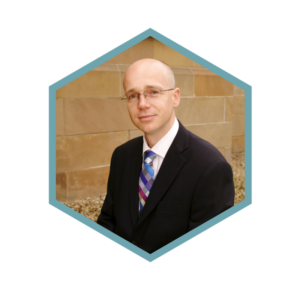Newslink 89 | Spring 2018
 Newslink 89 | Editorial
Newslink 89 | Editorial
Dr Giles Brown
Editor | Newslink
I met with an academic colleague recently who works in the field of climate change. In our discussion, he mentioned he had been invited to give a guest lecture recently, and that during the post-talk questions a member of the audience had asked what he did personally to mitigate changes to our climate and environment.
What a great question!
Usually such settings prompt broader discussion of issues we face as a society or species, which can be somewhat abstract and allow us (either consciously or subconsciously) to distance ourselves as individuals from the larger issue (“what can I possibly do faced with such a huge global problem?”). To personalise it is important and was insightful on the part of the questioner.
Given this discussion was soon after the AUA Annual Lecture in Cardiff, which is covered by a number of authors in this issue, it got me thinking about the Association and our roles as individual members. Given the rate and magnitude of ongoing change in the HE sector, punctuated by (often very public) crises (VC’s salaries, the Board of the new Office for Students anyone?), it is often all too easy to throw up one’s arms and ask “but what can I possibly do faced with such huge sector-wide problems?” Well, lots… we are all members of a professional Association and network, and as members we can, of course, simply belong. However, do not forget that with membership comes a relationship, both with other members and, by extension, with others (both academic and professional services staff) in the HE sector.
Importantly, that relationship is one of peers, eg people who have similar interests and are likely to influence the person’s beliefs and behaviour1. Therefore, we can all do something to help our peers with their individual challenges, to advance the Association, and to contribute to the challenges faced by the sector.So, encourage others to join the AUA, share good practice, go to Association events and support your local Network/Region, connect with your peers, write something to either inform or stimulate debate, and read more widely to place your role in the wider context. Finally, be positive – we’ve all been frustrated when we have a good idea and the discussion immediately focuses on why it won’t work/isn’t a good idea/has been tried before; start with “that’s an interesting idea, let’s discuss it further to see if we could make it work”.
1 Wikipedia (2018). Peer group. Available at en.wikipedia.org/wiki/Peer_group [accessed 25 January 2018].
Gaining Fellowship
why I did it and you should too
Graham Rimmer FAUA
Personal Assistant/Directorate of Student and Academic Support, University of Salford
On Thursday, 23 November 2017, I was awarded the status of Fellow of the AUA during the Annual Lecture. Being presented with this award by our Honorary President Mary Curnock Cook and Chair Kathyrn Fowler was truly humbling.
I started my career in Education in 2006 when I stumbled across an opportunity to work for The Manchester College in their justice division, offering learning opportunities for those held in custody, servicing sentences bestowed by the courts. At the time, I was just looking for new opportunities. To my surprise, I found my calling.
I developed my administrative knowledge by absorbing information from my peers and senior colleagues in addition to participating in additional formal qualifications. After a short time I knew that a career in education was something I wanted to pursue. Funnily, Mary said during the lecture that most of us stumble across this career; how true that statement is for me!
After eight fantastic years at The Manchester College and near completion of my first undergraduate qualification, I was ready for the next challenge. I joined the University of Salford as PA to the Registrar in November 2015 and my development continued. I came across the AUA via the Regional Coordinator, who also happens to be based at Salford, and we discussed how the AUA, and in particular how the Professional Behaviours* would help
me in my professional development and transition to the sector. What I found useful with the Professional Behaviours is that I was already undertaking this learning within my role, but now I had the opportunity to formalise it.
Using the Professional Behaviours to underpin my professional growth has allowed me to continue on my journey, and supported my wider development. I recently graduated from the Open University and I am now working on my Masters in Education, specialising in Leadership and Management. I decided to apply to become an AUA Fellow as I believe that I presented the behaviours well and my passion for sharing knowledge to my peer group supported that too. Being relatively new to the sector I was unsure whether my application was successful, but as we now know it was. It is a privilege to be recognised in this way and as a Fellow I will continue to share my knowledge and experience of being an administrator amongst colleagues. If you are considering becoming an Accredited Member or Fellow of the AUA and are a little daunted by the process, my advice is ‘don’t be’. Once you start writing the statement, you will find yourself immersed in memory, and having to choose what you put forward is exciting and rewarding.
Also in this issue…
Inspiring career journeys
Building a career in higher education
Taking a lead on Brexit
Tackling uncertainty in the sector
AUA Annual Lecture
Highlights from the 2017 lecture
…to read the full edition of Newslink 89, you must be a member. Sign up or log in to gain full access.

0 comments on “Newslink 89 | Spring 2018”